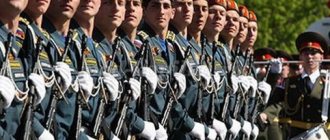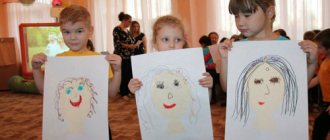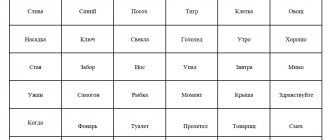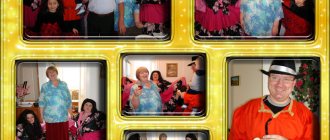Plan - class notes in 7th grade “Laughter is the best medicine. April 1st is April Fool's Day."
Classroom teacher:
Ramazanova Dilara Shikhnabievna.
MBOU Secondary School No. 4, Belidzhi
Plan - class notes in 7th grade
“Laughter is the best medicine. April 1 is April Fool's Day."
Goals:
1) promote the development of the emotional and sensory sphere of children, the ability to consciously express their emotions and feelings, emotional self-control skills; 2) acquaintance with the history of the holiday; 3) help maintain a positive mood in the life of the class team.
Equipment:
Cards.
During the classes
I
Organizational moment.
Teacher:
Good afternoon guys! Hello!
A good joke, a sweet joke, start the day, friends! A wise joke, a sensitive joke, Without which you cannot live!
Laughter is more beneficial to a person than a good drug. He who laughs goes to the pharmacy less often, they say.
A joke is valued for good reason, but a good one is doubly appreciated. Let there be more laughter and jokes in every day every year!
II
The main stage of the lesson.
Conversation. -What is the date today? (...)Who can tell me what holiday was just recently? (April 1st is April Fool's Day). Fine. How is this holiday different from all the others? (Children’s answers) Did you play pranks on anyone on this day? (Children’s answers) Do you know where this holiday came from? (Children's answers) Let's find out.
history of the holiday
April Fool's Day
- a global holiday celebrated throughout the world on the first of April. Although the holiday is not national, it is celebrated in many countries. During this holiday, it is customary to play pranks on friends and acquaintances, or simply make fun of them.
Humor is an English word that means a special type of comic that combines ridicule and sympathy. The word “comic” translated from Greek means “cheerful, funny.”
Where exactly this holiday comes from - France, England, Mexico or Sweden - is a mystery that, unfortunately, is shrouded in darkness.
.
One of the influential versions about the origin of the holiday of laughter is associated with the fact that April 1 was originally celebrated in many countries as the day of the vernal equinox and the time of Easter. Celebrations on the occasion of the spring new year were always accompanied by jokes, pranks and funny pranks.
The tradition of the holiday still lives on: the reason was nature itself, because people tried to appease the spring vagaries of the weather with jokes and practical jokes. Another, also widespread, version of the origin of April Fools' Day is associated with the transition to the Gregorian calendar, introduced by Pope Gregory in 1582.
The fact is that the New Year in the Middle Ages was celebrated not on January 1, but at the end of March, before King Charles IX reformed the calendar in France in 1563-1564. Therefore, the New Year's week began on March 25 and ended on April 1.
Some people continued to celebrate the New Year according to the old style on April 1. Others laughed and made fun of them, gave them stupid gifts and called them April Fools. This is how the so-called April Fools' Day arose.
In Scotland this day is called Cuckoo Day.
On this day, it is customary to send funny cards and give gifts - small funny souvenirs. Usually jokes are played with friends and acquaintances.
In the UK it is customary to prank each other only in the mornings
In Russia, April Fool's Day was introduced by Peter I. It seemed to Peter that in the mornings, and not only in the mornings, many of his contemporaries looked somehow gloomy, unable to speak smoothly among themselves, joke, or not be offended by jokes. April Fool's Day, Peter I decided, was the most suitable cure for this ineptitude. And on this first holiday of humor, everyone began to laugh. The first mass April Fool's draw took place in Moscow in 1703. Heralds walked the streets and invited everyone to come to the “unheard-of performance.” There was no end to the audience. And when the curtain opened at the appointed hour, everyone saw a banner on the stage with the inscription: “The first of April - don’t trust anyone!” This is where the “unheard of performance” ended.
Since the end of the 18th century, lines about April Fools' pranks have appeared in the works of many writers and poets. For example, Pushkin wrote in a letter:
The king's eyebrows furrowed, He said: “Yesterday a storm fell. Monument to Peter».
He got scared: “I didn’t know!.. Really?” - The king burst out laughing: “First, brother, April!”
The main thing is to joke in such a way that it’s funny to the person you’re joking about!
And we tried to prepare today’s event in such a way that by the end of the holiday there would not be a single gloomy face left in the class. We hope that fun competitions, tasks, jokes, practical jokes, and surprises will help you solve all your problems.
III
Physical Minute
We clap our hands, clap, clap clap overhead
We stomp our feet, stomp, stomp,
raise our knees high
shake our heads
forward
, move them back, we raise our arms, we lower our arms
, raise them
We squat low and stand up straight,
squat and jump
. Hands down on the side. Unclench - into a fist Hands up and into a fist Unclench to the side Rise on your tiptoes Squat and straighten Legs together. legs apart.
IV
Continuation
of Competition 1. “What is the question, is the answer”
(for everyone present).
In life we constantly ask each other questions, sometimes serious, sometimes funny. You should learn to answer the last questions, and also with humor.
For example: 1. Where is the end of the world? — On the third floor of the school, all the light bulbs there burned out.
And now the questions: 1. How to divide five potatoes between two without leaving a remainder? (boil the puree and divide into equal portions);
2.How to jump from a 10-meter ladder without hurting yourself? (you need to jump from the last step;
3. If an egg floats down the Volga, where did it start its journey? (from chicken);
4.What do fish and chatterboxes have in common? (continuously open mouth);
5. What can you cook, but cannot eat? (lessons);
6.What can run but cannot walk? (Creek);
7.What happened on February 31, 2000? (nothing happened, there is no such day on the calendar).
The wittiest ones receive souvenirs.
Competition 2. “Jokes on a plate”
(describe the recipe for the dish by its name).
The class is divided into 3 teams. The captains of each team pull tasks from a beautiful bright hat. Then discuss the answer with the whole team for 5 minutes. The team representative gives an answer to the task. The most creative team receives souvenirs.
Names of dishes:
crib sheet under a fur coat; chop from a chemistry textbook; stuffed briefcase; science stew; sandwich from foreign language dictionaries; aspic diary; globe with ink sauce.
Competition 3. “Cinema”
In turn, representatives of each team pull tasks from a beautiful bright hat. There are three words written on the card that you need to use to guess the famous cartoon. The team that gives the most correct answers receives souvenirs.
Examples of tasks:
1. Mice, stepmother, prince (“Cinderella”)
2. Sharik, Matroskin, postman Pechkin (“Uncle Fyodor, the dog and the cat”)
3. Wolf, hare, chase (“Well, just wait!”)
Competition 4. “Guess what’s behind your back”
The teacher selects one person from the class, brings him to the board and hangs an inscription on his back. With the help of leading questions, he must guess what is written behind his back.
Fun moment.
-Let's draw our mood and arrange an exhibition.
Exhibition of drawings.
V Reflection.
— What did we learn in class today?
-Did your mood change during the lesson?
Thanks to everyone for the fruitful work. The lesson is over.









